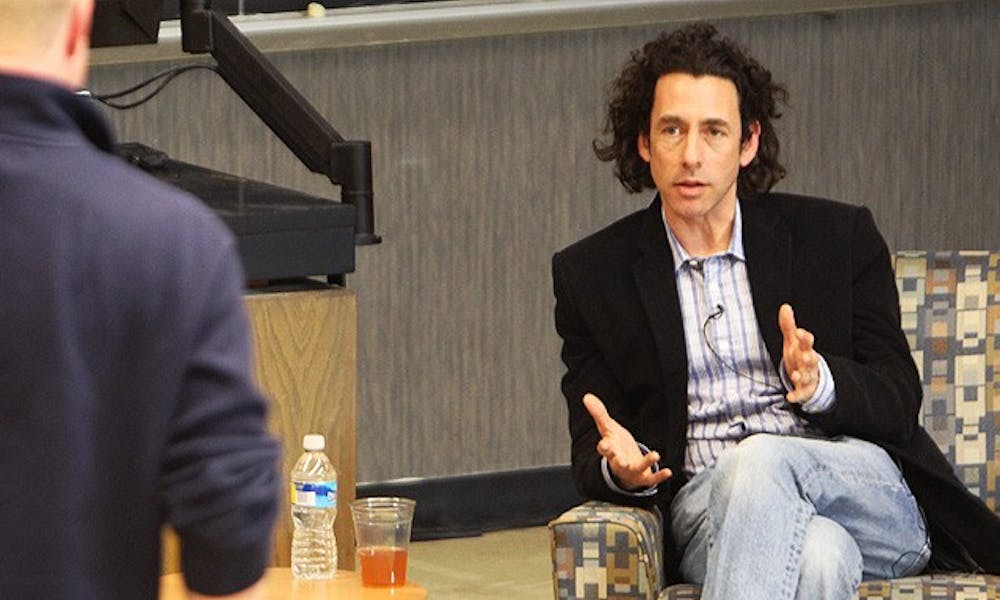Energy problems require a rational discussion among the experts and the public to ensure accurate information and strong clean energy policy in the future, said a leading filmmaker Wednesday evening.
Documentary filmmaker and producer Gregory Kallenberg and Richard Newell, Gendell associate professor of energy and environmental economics and director of the Duke Energy Initiative, hosted a viewing of Kallenberg’s film—“Haynesville: A Nation’s Hunt for an Energy Future”—followed by a question and answer session. The film, which follows three people from northwestern Louisiana as their lives are affected by the discovery of the Haynesville Shale natural gas deposit, comes at a time when growth in hydraulic fracturing or “fracking,” the process of injecting liquid into gas wells to fracture rock and release the gas trapped within, is stoking a heated discussion about the future of energy in the United States.
“We’ve seen this film bring people together to have a discussion about our energy future,” Kallenberg said. “There needs to be a populist voice given to the middle in order to solve the problems we face.”
The film attempts to tell the story of the Haynesville shale boom in a way that gives voice to every angle and opinion, from a landowner who signs a windfall lease agreement with a drilling company to a group of landowners denied royalties and environmental protections on their land due to a long-forgotten 1955 contract.
“I would like to say we are on both sides of the issue, but I’ve gotten crushed by both sides,” Kallenberg said.
Kallenberg said he believes that because the film remains objective, people will be forced to form an opinion one way or the other.
“Both sides of the issue are causing stasis in the middle,” he said.
Besides chronicling the personal stories of the three members of the Louisiana community, the film addresses the need for discussion and collaboration in order to transition from polluting fossil fuels to clean alternatives.
“[The film] is a spoonful of personal story helping the energy story go down,” Kallenberg said.
After “Haynesville,” Kallenberg plans to launch a series of films with the world’s foremost energy experts to inform the public on fossil fuel use and alternatives.
Attendee Marc Monbouquette, a second year graduate student at the Nicholas School of the Environment, said that the film told the story of the Haynesville shale deposit accurately and objectively.
“It reinforced my opinion on fracking,” Monbouquette said. “I am becoming more of a supporter.”
The film screening was the first in a series of energy talks hosted by the Duke Energy Initiative.
The Energy Initiative brings together various schools of the University, such as the Nicholas School, Trinity College of Arts & Sciences and the School of Law, Newell said. The collaboration between the schools, as well as the broad spectrum of speakers in the series, should generate a dialog within the University and beyond to address the world’s energy problems.
“Given the interest in natural gas in the U.S., I thought it would be of interest with our broader community, ” Newell said.
Through his films, Kallenberg said he intends to engage the community to discuss energy issues rationally and meaningfully, noting the polarizing effect of another documentary that was critical of natural gas drilling.
“When ‘Gasland’ came out, people went to opposite extremes,” he said. “We’re creating a table in the middle where people can sit and discuss.”
Get The Chronicle straight to your inbox
Signup for our weekly newsletter. Cancel at any time.

